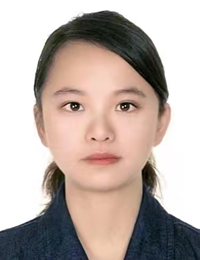CHENG Wei

CHENG Wei
Assistant researcher
Tel: +86(0)21-63846590-776965
Email: wcheng@shsmu.edu.cn
Research interests:
1.Alternative test in toxicology
a)Stem cell toxicology and developmental toxicology
b)Stem cell-derived organoids and their application in toxicity testing
c)Predictive toxicology
2.Emerging pollutants and their toxic mechanisms in target organs
a)Cardiotoxicity
b)Hepatotoxicity
c)Osteotoxicity
Educational background
2014.09-2017.06
Shanghai Jiao Tong University, PhD in Public health and predictive medicine
Professional Experience:
2020.07-present
Assistant researcher, Shanghai Jiao Tong University, School of medicine
2017.10-2020.06
Postdoctoral fellow, Shanghai Jiao Tong University, School of medicine
Research projects
2022-2025 Foundation of Shanghai Science and Technology Committee (Specific Program for animal welfare and alternative testing), PI
2020-2023 University Startup Fund, PI
2018-2020 China postdoctoral science foundation, PI
2019-2021 Foundation of Shanghai Science and Technology Committee (Specific Program for animal welfare and alternative testing), participating
2016-2019 National Natural Science Foundation of China, participating
Other professional activities
Reviewer for Theranostics, Environment International, Ecotoxicology and Environmental Safety, Toxicology.
Selected Publications
Xie Y, Li Y, Feng Y, Cheng W*, Wang Y*. Inhalable microplastics prevails in air: exploring the size detection limit. Environ Int, 2022, 162:107151.
Cheng W*, Li X, Zhou Y, Yu H, Xie Y, Wang H, Li Y, Feng Y, Wang Y*. Polystyrene microplastics induce hepatotoxicity and disrupt lipid metabolism in the liver organoids. Sci Total Environ, 2022, 806 (Pt 1): 150328.
Cheng W#, Li X#, Yang S, Wang H, Li Y, Feng Y, Wang Y*. Low doses of BPF-induced hypertrophy in cardiomyocytes derived from human embryonic stem cells via disrupting the mitochondrial fission upon the interaction between ERβ and calcineurin A-DRP1 signaling pathway. Cell Biol Toxicol, 2021, doi:10.1007/ s10565-021-09615-y.
Cheng W, Yang S, Li X, Liang F, Zhou R, Wang H, Feng Y, Wang Y*. Low doses of BPA induced abnormal mitochondrial fission and hypertrophy in human embryonic stem cell-derived cardiomyocytes via the calcineurin-DRP1 signaling pathway: A comparison between XX and XY cardiomyocytes. Toxicol Appl Pharmacol.2020, 388:114850.
Cheng W, Yang S, Liang F, Zhou R, Li Y, Feng Y, Wang Y*. Low-dose exposure to triclosan disrupted osteogenic differentiation of mouse embryonic stem cells via BMP/ERK/Smad/Runx-2 signalling pathway. Food Chem Toxicol. 2019, 127:1-10.
Cheng W, Zhou R, Liang F, Wei H, Feng Y, Wang Y*. Application of mouse embryonic stem cell test to detect gender-specific effect of chemicals: a supplementary tool for embryotoxicity prediction. Chem Res Toxicol. 2016,29(9):1519-1533.
Cheng W, Zhou R, Feng Y*, Wang Y*. Mainstream smoke and sidestream smoke affect the cardiac differentiation of mouse embryonic stem cells discriminately. Toxicology. 2016, 357:1-10.
Cheng W, Yu Z, Feng L, Wang Y*. Perfluorooctane sulfonate (PFOS) induced embryotoxicity and disruption of cardiogenesis. Toxicol In Vitro. 2013,27(5):1503-1512.
Li X, Cheng W*, Yang S, Liang F, Wang H, Feng Y, Wang Y*. Establishment of a 13 genes-based molecular prediction score model to discriminate the neurotoxic potential of food relevant-chemicals. Toxicol Lett, 2022, 355:1-18.
Wang L#, Cheng W#, Zhu J#, Li W*, Li D, Fu Q, Mo X, Yang X, Zhao W, Ren M, Ren J, Zhang K*. Electrospun nanoyarn and exosomes of adipose-derived stem cells for urethral regeneration: evaluations in vitro and in vivo. Colloids Surf B Biointerfaces, 2022, 209: 112218.
Zhou R, Cheng W, Feng Y, Wang W, Liang F, F Luo, Yang S, Wang Y*. Combined effects of BPA and PFOS on fetal cardiac development: In vitro and in vivo experiments. Environ Toxicol Pharmacol, 2020, 80: 103434.
Yang S, Cheng W, Li X, Liang F, Zhou R, Wang H, Feng Y, Wang Y*. Use of embryonic stem cell-derived cardiomyocytes to study cardiotoxicity of bisphenol AF via the GPER/CAM/ eNOS pathway.Toxicology, 2020,432:152380.
Zhou R, Cheng W, Wei H, Liang F, Feng Y, Wang Y*. Interactions between three typical endocrine-disrupting chemicals (EDCs) in binary mixtures exposure on myocardial differentiation of mouse embryonic stem cell. Chemosphere. 2017, 178: 378-383.



